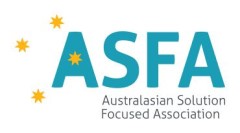Solution-Focused Zone of Proximal Development: A Vygotskyan Contribution to Solution-Focused Therapy
Abstract
This theoretical paper explores the possibility of combining principles of solution-focused therapy with theories of learning and development by the psychologist Lev Vygotsky, whose thinking led to the development of Cultural-Historical Activity Theory. The similarities and complementaries between these traditions merit attention. Further, SFT has been characterized as an eclectic and constantly evolving approach, the theoretical and philosophical foundations of which are somewhat scattered. Hence, the article attempts to redefine the philosophical and theoretical location of SFT through a “Vygotskyan and CHAT-informed” lens. Since the emphasis in SFT seems to be on the identification and detailed description of the client’s skills, the author offers a new view of SFT as a pragmatic version of social constructionism. Based on Vygotsky's concepts of 'cultural mediation and 'the zone of proximal development', the author proposes a new concept, namely solution-focused zone of proximal development. The concept highlights learning-in-SFT as an optimally designed non-individualistic and expansive process, leading to empowered independence and creativity.
Recommended Citation
Freeman, Stephanie
(2021)
"Solution-Focused Zone of Proximal Development: A Vygotskyan Contribution to Solution-Focused Therapy,"
Journal of Solution Focused Practices: Vol. 5:
Iss.
1, Article 6.
Available at:
https://oasis.library.unlv.edu/journalsfp/vol5/iss1/6
Included in
Counseling Psychology Commons, Developmental Psychology Commons, Educational Psychology Commons, Other Psychology Commons




